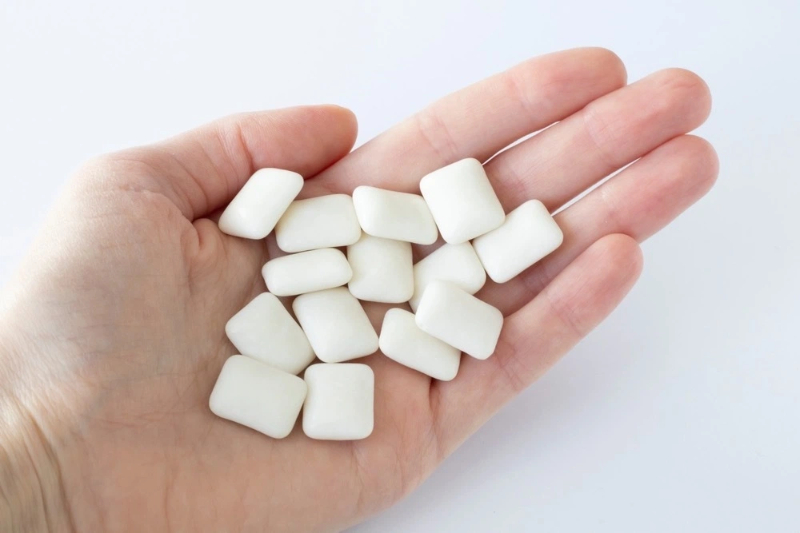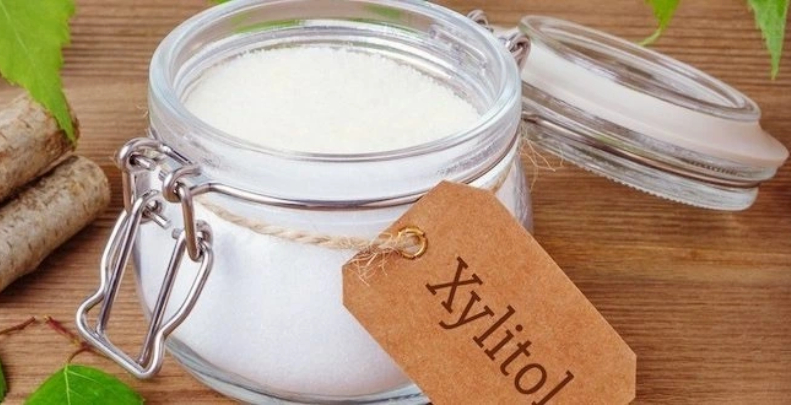Views: 222 Author: Sara Publish Time: 2025-10-20 Origin: Site








Content Menu
>> Metabolic and Cardiovascular Effects
>> Respiratory and Immune Benefits
>> Digestive Health and Bone Health
● Possible Risks and Side Effects
● FAQ
>> 2. Is xylitol safe for children?
>> 3. Can xylitol prevent cavities?
>> 4. Are there side effects from consuming xylitol?
>> 5. Why is xylitol toxic to dogs?
Xylitol is a sugar alcohol naturally found in many fruits and vegetables, celebrated as a popular sugar substitute in foods, beverages, and oral care products. This sweetener provides the sweetness of sugar with fewer calories and less impact on blood sugar levels, making it suitable especially for diabetics and those aiming to reduce calorie intake. This article explores the extensive effects of xylitol on dental health, metabolism, cardiovascular health, digestion, and beyond, while also examining its potential risks.

Xylitol is classified chemically as a sugar alcohol or polyol. It provides about 2.4 calories per gram, roughly 40% fewer than regular sugar, which contains 4 calories per gram. Its sweetness is comparable to sugar but it carries a very low glycemic index of about 7, versus sugar's GI of around 60, indicating it causes minimal blood sugar elevation. Because it is not fully absorbed in the intestines, it ferments in the colon, which contributes to some of its effects on digestion and gut health.
Xylitol has one of the best-documented benefits: its remarkable effects on oral health. It inhibits the growth of Streptococcus mutans and other bacteria responsible for tooth decay, reducing the risk of cavities and plaque formation. Regular consumption of xylitol-containing gums, candies, or oral rinses has been shown in multiple studies to significantly decrease dental caries. Its ability to reduce acid production in the mouth contributes to enhanced tooth enamel protection.
Xylitol's low glycemic index makes it a preferable sweetener for people with diabetes or insulin resistance, causing a lesser spike in blood glucose and insulin levels. Additionally, some studies report that xylitol helps reduce LDL cholesterol and total cholesterol levels, aiding cardiovascular health indirectly by improving lipid profiles.
However, emerging research raises concerns about xylitol's direct effects on the cardiovascular system. Some clinical and mechanistic studies suggest that elevated circulating xylitol may increase platelet aggregation and blood clot risk, potentially raising vulnerability to heart attacks and strokes, especially in individuals with pre-existing cardiovascular conditions. These findings necessitate cautious consumption, especially by at-risk populations.
Beyond dental health, xylitol displays antimicrobial and immune-modulating properties. Laboratory and animal studies have shown xylitol inhibits growth of respiratory pathogens like Streptococcus pneumoniae and reduces biofilm formation in bacteria linked to sinus infections. Clinical evidence suggests that xylitol may reduce the incidence of sinusitis, otitis media (middle ear infection), and respiratory tract infections, potentially by improving mucosal immunity and bacterial clearance.
Due to partial fermentation in the colon, xylitol acts as a prebiotic fiber that supports gut microbiota balance, aiding digestion and relieving constipation. Some studies show that fermenting bacteria produce butyrate, a short-chain fatty acid essential for colon health. Additionally, xylitol consumption has been linked to improved bone mineral density and reduction in bone resorption in animal models, indicating potential benefits for osteoporosis prevention.
By providing fewer calories than sugar and possibly enhancing satiety, xylitol is considered a helpful component in weight management plans. However, human studies on its effects on satiety are limited and inconsistent, warranting further research.

One of the most common side effects of xylitol consumption, especially at doses over 50 grams per day, is gastrointestinal discomfort including bloating, gas, and diarrhea. This happens because unabsorbed xylitol ferments in the large intestine. Individuals with irritable bowel syndrome or sensitivity to FODMAPs (fermentable oligosaccharides, disaccharides, monosaccharides, and polyols) should consume xylitol cautiously.
While xylitol has metabolic benefits, its association with increased platelet activity and thrombosis potential is a noteworthy risk factor for cardiovascular events. People with existing heart disease or risk factors should seek medical guidance before incorporating large amounts of xylitol regularly.
Xylitol is extremely toxic to dogs even in small quantities. It causes rapid insulin release leading to hypoglycemia and can result in liver failure. Pet owners must keep xylitol-containing products out of reach of their animals.
Most healthy adults can safely consume moderate amounts of xylitol (up to about 50 grams daily) without adverse effects. Starting with small doses helps assess individual tolerance and avoid digestive upset. Pregnant and breastfeeding women should moderate intake due to limited safety data. Always ensure pets do not access xylitol products.
Xylitol is widely used in sugar-free gums, oral care products, candies, and baked goods. It can be a practical sugar alternative for people monitoring blood sugar or managing dental health. When choosing xylitol-containing products, avoid overconsumption to minimize digestive side effects.
Xylitol is a versatile and beneficial natural sugar substitute notable for its positive dental health effects, low glycemic impact, and potential benefits in respiratory health, digestion, and bone metabolism. However, emerging evidence linking xylitol to increased cardiovascular risk through enhanced clotting urges moderation, especially for at-risk individuals. Its gastrointestinal effects and high toxicity to dogs are also important considerations. Overall, xylitol can be a healthy component of the diet if consumed responsibly and in moderate amounts.

Xylitol is a naturally occurring sugar alcohol used as a sweetener that tastes like sugar but provides fewer calories and has a much lower glycemic index, causing minimal impact on blood sugar levels.
Xylitol is generally safe for children older than five years in recommended amounts, but small children should use it with care to avoid choking or excessive ingestion.
Yes, regular consumption of xylitol reduces harmful oral bacteria, decreasing plaque formation and cavity risk. It is often recommended by dentists as part of oral hygiene.
High intake of xylitol (above 50 grams per day) can cause digestive issues such as bloating, gas, and diarrhea due to fermentation in the colon.
Xylitol triggers a rapid insulin release in dogs, causing dangerous hypoglycemia and potential liver failure, making it highly toxic even in small amounts.
[1](https://pmc.ncbi.nlm.nih.gov/articles/PMC6723878/)
[2](https://www.health.harvard.edu/nutrition/xylitol-what-to-know-about-this-popular-sugar-substitute)
[3](https://pubmed.ncbi.nlm.nih.gov/32638045/)
[4](https://academic.oup.com/eurheartj/article-abstract/45/27/2439/7683453)
[5](https://newsroom.clevelandclinic.org/2024/06/06/cleveland-clinic-led-study-links-sugar-substitute-to-increased-risk-of-heart-attack-and-stroke)
[6](https://www.science.org/content/blog-post/and-now-xylitol)
[7](https://www.lerner.ccf.org/news/article/?title=Sugar+substitute+xylitol+associated+with+increased+risk+of+heart+attack+and+stroke&id=ddfa55b755be6f25e81a98d9423ada4d6aea784f)
[8](https://news.cuanschutz.edu/news-stories/xylitol-for-your-teeth-sweet-trend-or-true-cavity-blocker)
[9](https://www.news-medical.net/health/Xylitol-Research-and-Evidence.aspx)
